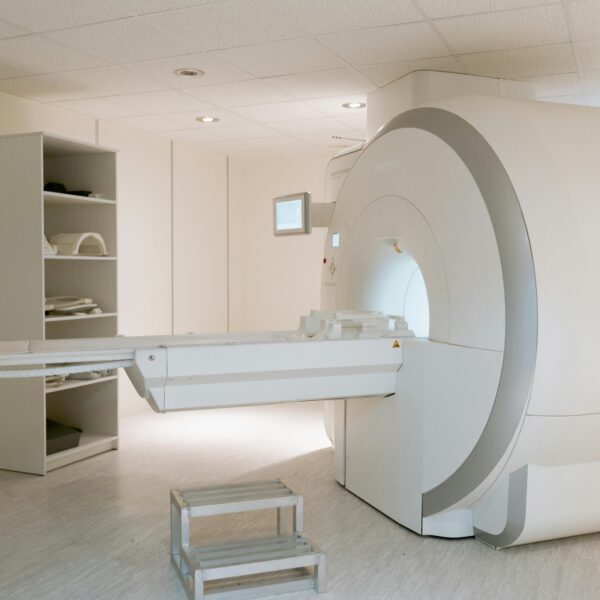Working in healthcare is an incredible accomplishment. Contributing to a community that helps save lives and furthers scientific discovery is an immensely honorable feat – and one that we’re proud to support! Of course, successful healthcare professionals must have the proper licenses and credentials to be considered for a job. However, being good on paper isn’t always enough. It’s important to consider the soft skills that round you out as a great employee.
Soft skills are skills that are reflective of an individual’s personality and disposition. They can be applied in a workplace setting to contribute to overall professional success.
Demonstrating soft skills in a healthcare environment can carry just as much weight as the technical skills required for the role. There is a significant human approach to working in healthcare. Some of these skills can’t be taught in medical textbook but are rather developed and honed through time and experience.
Here are our top 10 soft skills that every great healthcare professional should embody:
Empathy
When working in a field that frequently deals with people who are sick, healthcare professionals will often encounter emotionally difficult situations. It is of the utmost importance that healthcare professionals have an abundance of emotional intelligence, namely practicing empathy. The ability to put oneself in another person’s shoes, especially in moments of weakness, provides a better understanding of what the patient is going through. This allows for an improved approach to treatment, including how the patient needs to be cared for, and how to make their situation more comfortable.
Patience
Taking the time (when possible) to think, consider, and reflect before acting is a soft skill that should be practiced daily – workplace and beyond. The frustration that can arise from not getting immediate results is a struggle for a lot of people. This feeling is increasingly common in an age of instant gratification. It also takes a lot of patience to explain complex ideas to patients, even if it might be common knowledge to you. The ability to remain level-headed in these situations is commendable. A lack of patience can lead to rash decision-making and that is when mistakes are made. There is no room for clumsy errors when it comes to your patients’ health.
Humility
Humility consists of being modest, being open-minded, and having little to no self-importance. Several, if not all, healthcare sectors involve putting the needs of others first. It’s not necessary to shower yourself in praise for doing your job. We can do that for you! In group discussions, it’s beneficial to listen to others’ opinions even when you don’t agree with them. Many people depend on healthcare professionals to be a place of comfort times of need, so there is no room for ego in a healthcare setting.
Decision-Making
The ability to make decisions under extreme pressure is absolutely necessary in a healthcare role. From deciding how to communicate a diagnosis to which medications a patient needs, you have to make hundreds of decisions every day. Healthcare professionals are also responsible for the outcomes of their decisions.
Indecisiveness is more than just a frustrating mental battle, but in a medical setting, it can lead to lost lives. Also, there may be situations in which patients can’t make decisions for themselves and trust that you will make the right one for them. The ability to make tough decisions can also set you apart as a leader – another admirable quality in any healthcare professional.
Attention to Detail
Dealing with several patients a day? Sifting through hundreds of medical records? The sheer amount of information that is passed through a healthcare facility on a daily basis is gigantic. The more information there is, the more likely it is for things to slip through the cracks. In busy workplace environments, there is a lot of opportunity to get distracted – but the best workers never let this happen. Having close attention to detail is one of the most important soft skills a healthcare professional can have.
Being Adaptable and Flexible
Irregular hours are a common aspect of many healthcare roles. Being flexible and able to pick up shifts on short notice is a mark of a great team player. The willingness to learn new tasks and adapt to ever-changing healthcare environments is also a must-have soft skill.
Communication Skills
Healthcare professionals have to be competent in communicating with one another and their patients. Explaining clearly and concisely what a chart means or which procedure to perform is extremely important and can mean the difference between life and death. Communicating medical jargon to patients in a language they can understand makes them feel at ease when they are in upsetting situations. Remaining calm while communicating is also a feat to be proud of.
Time Management
Knowing how much time to allot to tasks and being able to meet constant deadlines are great soft skills to have. Healthcare settings are often busy and hectic. This also means that they are prone to priorities shifting at the drop of a hat. The stack of responsibilities that any one healthcare professional must juggle on a daily basis is enormous. At a certain point in your career (and life), nobody is going to be responsible for managing your time except for you – so the sooner you perfect this skill, the better!
Willingness to Learn
Albert Einstein said, “Once your stop learning, you start dying!” Having a willingness to learn new things, no matter what stage you are in your career, is a great soft skill. Whether you’re continuing your research, learning from your mistakes or discovering new things by trial and error – the healthcare environment is constantly changing. There is no limit to learning opportunities, from conferences to self-taught knowledge. Many positive things that can come from constant learning – among them, self-improvement and open-mindedness! Believing that you know everything and are smarter than everyone else will be detrimental in the long run.
Teamwork
It is rare that healthcare professionals work alone – if ever. Every healthcare facility has a million working parts, and if everyone isn’t on the same page, the entire operation is likely to fall apart. There will often be times in which communicating with different sectors of a facility is necessary, which isn’t always easy. The ability to work well with others is not a soft skill that everyone possesses, but it is one that is critical in the healthcare world. It not only results in a smoother running facility, but it also makes a more enjoyable workplace for everyone.
What other soft skills should all top-notch healthcare professionals have? Join the conversation on LinkedIn or email us directly at inquries@radiusstaffingsolutions.com.











